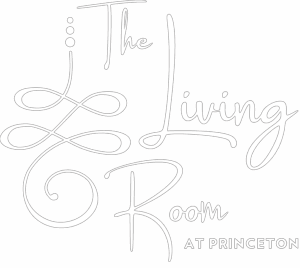Mental health professionals have long been aware there were connections between alcohol addiction and PTSD and other trauma disorders. What wasn’t always as clear were the precise mechanisms driving higher occurrences of alcohol addition in people with post-traumatic stress disorder. Fortunately, we now have the benefit of decades of research to better understand this relationship—-and treat PTSD with alcoholism effectively with trauma-informed care.
This article from The Living Room at Princeton explores the relationship between alcohol addiction and PTSD and how these co-occurring conditions can be treated effectively.
5 Staggering Statistics Regarding PTSD and Alcoholism
- 30–50% of people with PTSD meet criteria for an alcohol use disorder at some point in their lives. In the U.S. National Comorbidity Survey, 46% of women and 40% of men with PTSD also had lifetime alcohol dependence.
- Among veterans receiving VA care, 27% of those diagnosed with PTSD also receive a diagnosis of alcohol use disorder (AUD).
- 17.3% of adults with any serious mental illness (SMI), including PTSD, reported past-year heavy alcohol use versus 6.5% among adults without SMI, per 2022 National Survey on Drug Use and Health (NSDUH) findings.
- Adults with frequent mental distress (often overlapping PTSD) are twice as likely to report binge drinking in the past month compared with those without distress (24.8% vs. 12.4%). [Source: The CDC’s Behavioral Risk Factor Surveillance System (BRFSS) data]
- A study of survivors of sexual assault found that 43% with probable PTSD screened positive for problematic alcohol use, compared with 12% without PTSD.
4 Ways PTSD and Other Trauma Conditions Make Alcohol Addiction More Likely
People With Untreated Trauma Often Self-Medicate Their Symptoms
People with PTSD often turn to alcohol as a form of self-medication. Drinking can temporarily dull intrusive memories, reduce hyperarousal or anxiety, and ease sleeping problems. Over time, reliance on alcohol for relief fosters tolerance and dependence, trapping individuals in a worsening cycle of trauma and substance use.
Trauma Causes Changes to the Brain That Amplify the Calming Effects of Alcohol
Trauma reshapes the brain’s stress-response and reward systems. Chronic overactivation of the HPA axis elevates cortisol, while altered dopamine signaling makes alcohol’s calming effects feel more pronounced. These neurobiological shifts increase both the urge to drink and the risk of relapse.
Alcohol is Used to Cope with Other Conditions That Often Accompany PTSD
Co-occurring mental health conditions amplify vulnerability. Depression, generalized anxiety, and panic disorders frequently accompany PTSD, intensifying emotional distress. Alcohol then becomes a readily accessible—but maladaptive—coping tool, deepening both mood symptoms and addictive behaviors.
Situational Factors Associated with Trauma Also Increase Vulnerability to Alcoholism
Environmental and social factors compound the risk of alcohol addiction in people with PTSD. Isolation, fractured relationships, unemployment, and limited access to trauma-informed care leave survivors without healthy outlets. In communities lacking support networks, alcohol often becomes the default way to manage unresolved trauma.
How We Treat Alcohol Use Disorder with PTSD or Other Trauma Conditions
At The Living Room, we provide a highly-individualized treatment plan for every patient. No two patient’s treatment may look the same, even if they have similar diagnoses. That said, a person who presents with both an alcohol use disorder (AUD) and PTSD would be likely to receive a plan including these elements:
Medical Detox Phase with Our Trusted Partner Program
The Living Room works with select inpatient medical detox centers in New Jersey which specialize in safe and comfortable alcohol detox. This is to ensure the best care possible and provide a clear mind and body for the first phase of treatment.
Dual-Diagnosis Partial Care (PHP) Treatment for PTSD and Alcohol Use
Our acclaimed Partial Care phase is where the intensive therapeutic work begins. The Living Room provides trauma-informed treatment programming. This includes a safe, nurturing care environment and a dual-diagnosis treatment plan that addresses both alcohol dependence and trauma resolution. The Partial Care phase consists of full day (6 hours) treatment, 5 times per week.
Dual-Diagnosis Outpatient Treatment for PTSD and Alcohol Use
Our thoughtfully designed Intensive Outpatient Program (IOP) for PTSD and alcohol addiction offers many of the same features as Partial Care. These include individual psychotherapy, group counseling and specialized therapies, like EMDR.
The primary difference is that IOP is part-time treatment (Three 3-hour days per week for 9 hours of treatment). This makes IOP an excellent bridge from full-time care to a return to everyday life, or an attractive option for people with busy schedules that might make full-time treatment challenging to accommodate.
Treatments We May Use for PTSD With or Without Alcohol Abuse
- EMDR Therapy: EMDR is a specialized sound and light therapy expressly designed to treat PTSD that is proven highly effective and is shown to deliver quicker relief from PTSD symptoms than any other non-pharmocological treatment option.
- CBT and Prolonged Exposure: Cognitive Behavioral Therapy is one of the most effective psychotherapy methods for PTSD and trauma resolution. Combining CBT with Prolonged Exposure (PE) has synergistic benefits.
- Mindfulness Therapy: Mindfulness therapy has been shown effective in managing PTSD symptoms and developing healthy coping mechanisms in research done by the Veterans Administration (VA).
Medication Management: While medication alone is an incomplete solution for PTSD or alcoholism, psychotropic medicines or MAT options, like Campral are often part of a well-rounded, evidence based treatment plan for someone with PTSD and alcohol addiction.
Find Your Peace at The Living Room
The Living Room at Princeton is perhaps New Jersey’s most innovative outpatient addiction and mental health treatment program. Our unique blend of evidence-based clinical care methods is precisely balanced by our holistic approach to mental health. Our mission is simple. To both heal and empower the people entrusted to our care to manage their own conditions and to grow and heal.
Let’s talk about what The Living Room can do for you or the one you love, today.

